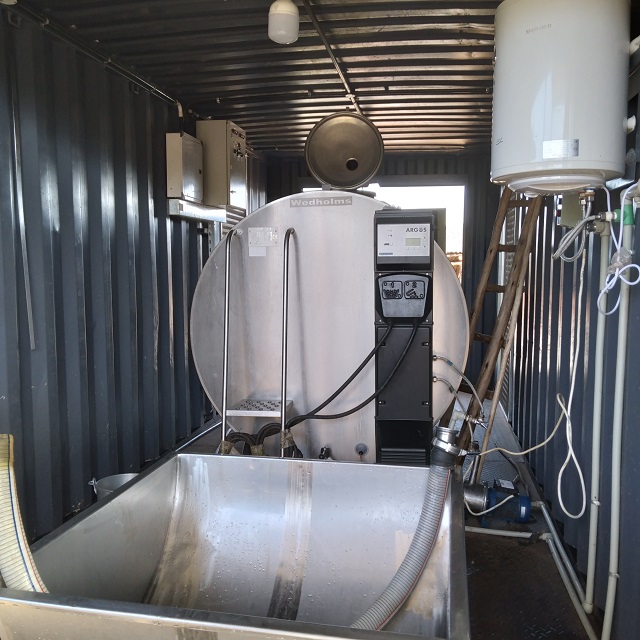
Kiruhura, Uganda | Julius Businge | Dairy farmers in South Western Uganda continue to cry over fluctuating low milk prices as the cost of running farms spike.
In separate interviews with journalists on May 21-22, farmers said, the government has a solution for them but it is taking long to act.
“Milk is not helping us as farmers,” said George Buracweke from Rwozi village, Kanyalyeru sub-county – Kiruhura district.
Buracweke added that government should intervene and look for market outside Uganda and also ensure there is supply of high quality acaricides to farmers.
Buracweke and other farmers said the current price of a litre of milk goes for Shs 600 today, down from an average of Shs 800 in March and April, 2021.
“You cannot plan when prices keep changing,” he said, “They are even low,” he added. Months before last year, farmers enjoyed high milk prices per litre of up to Shs 1,500 from milk processors like Pearl Dairy Farms Limited.
But processors like Pearl have cut on the quantities of milk purchased from farmers because of limited access to markets especially in East Africa.
At the beginning of 2020, Kenya banned dairy imports from Uganda citing complaints by Kenyan farmers over the influx of Ugandan milk which was being priced lower than the one produced in their home country.
The two governments have since been in talks to have the ban lifted, but nothing has come to pass yet.
Buracweke gets 20 litres of milk from eight cows a day, penning Shs 12,000 a day or Shs 360,000 a month. But he spends higher, an average of Shs 600,000 to run the farm monthly.
Buracweke says he would need to sell a litre of milk at Shs 1,000 (minimum) to break even. He has eight children, four are in school and have to be looked after using revenues from the farm, which is currently operating at a loss.
He is also calling upon government to help farmers improve on farm management practices especially now that the region is under quarantine because of the recent out-break of foot and mouth disease.
Enock Nuwagira, the general manager of a four-year-old Lake Mburo Farmers’ Cooperative Society, said they have engaged government before on the issue of price but no solution has materialized to date.
He says his members largely survive on milk proceeds which is why government should further interest themselves in engaging Kenyan authorities to allow entry of Ugandan produced milk.
Glorias Ankunda, an agriculture extension worker hired by Pearl Dairy Farms Limited said the latter has cut purchase of milk from farmers by around 55% since the Kenyan ban was instituted to 250,000 liters [from 800,000 liters].
Ankunda said, farmers’ livelihoods have negatively been impacted by the drop in milk prices, and urges government to further engage Kenyan authorities to lift the ban.
“We have trained farmers on best farming practices and are able to now produce a lot of milk but the market is small,” Ankunda said.
Uganda produces 2.6 billion litres of milk per annum. However, domestic demand stands at only 800 million litres, creating a huge surplus that foreign markets especially Kenya would consume.
Economic experts have hinted on protectionism as the main reason for Kenya restricting entry of Ugandan produced milk.
Kenya is EAC’s largest economy while Uganda comes third just behind Tanzania.
Protectionism tendencies, however ‘kill’ the whole purpose of the East African common market protocol, that allows among other things free movement of goods within member states.
 The Independent Uganda: You get the Truth we Pay the Price
The Independent Uganda: You get the Truth we Pay the Price





